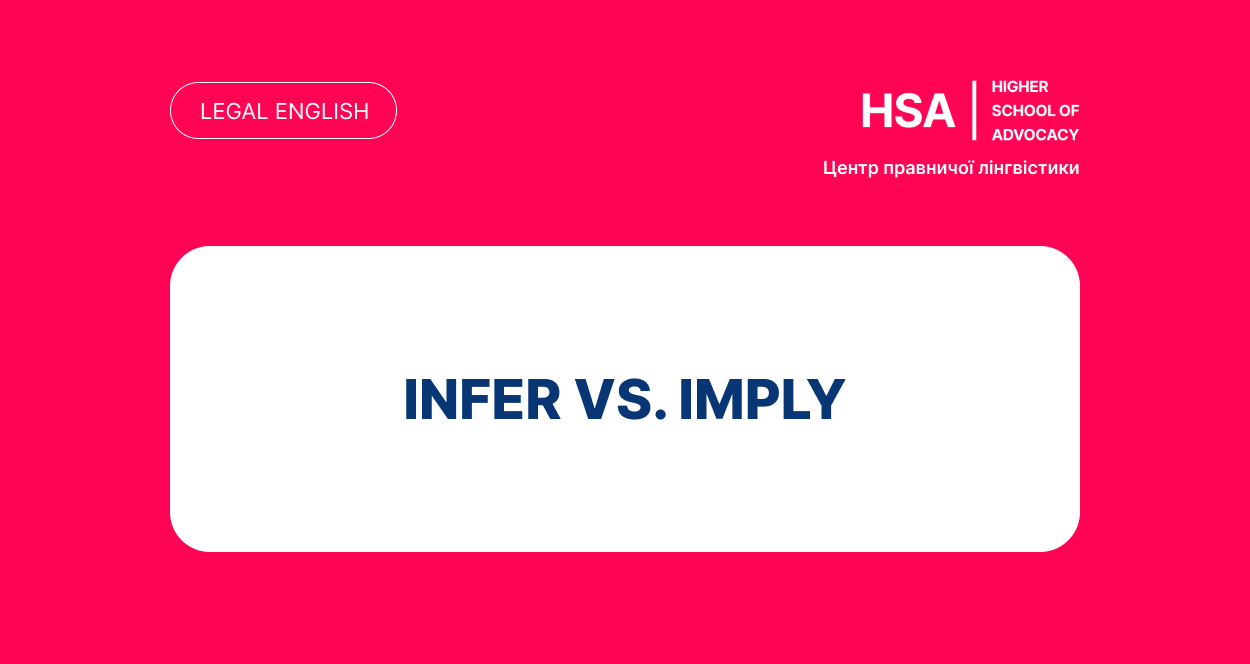
Пропонуємо до Вашої уваги картки керівниці Центру правничої лінгвістики ВША НААУ Людмили Колодник, які покликані з’ясувати різницю між термінами «Infer vs. Imply».
The terms infer and imply are often confused. A writer or speaker implies something, meaning that it is indicated or suggested without being explicitly stated:
“When the CEO stated that the company would not rule out paying a dividend to shareholders this year, she implied that a dividend may be paid.”
Conversely, a reader or listener infers (or draws an inference) from something by drawing conclusions that are not explicit in what is said:
“When the CEO stated that she would not rule out paying a dividend to shareholders this year, the shareholders inferred that the board of directors had recently rethought the issue of dividend payments, since they were not in favour of a payment a month ago.”